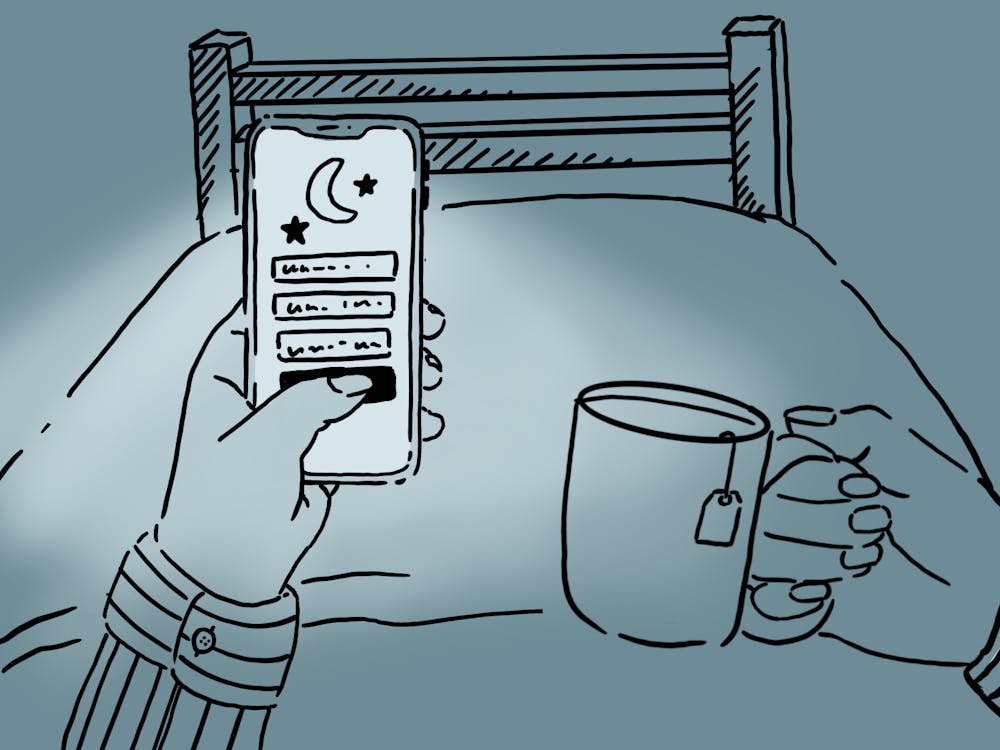In an effort to support students through the coronavirus pandemic, Penn's Counseling and Psychological Services and Student Health Service are offering a number of virtual resources, including a consolidated website of coping skills, online education programs, and phone call appointments.
“This uprooting has been difficult for everyone,” Chief Wellness Officer Benoit Dubé said. “Students have had to leave college housing. Faculty have had to leave their classes. Administrators have had to leave their offices. It has forced us all to be nimble. This traumatic uprooting has challenged us in different ways, but we have all been united in this challenge.”
Counseling and Psychological Services
In addition to shifting all standing and drop-in appointments to confidential virtual platforms, CAPS has created a page on its website outlining various strategies for students dealing with "unsettling" changes to their daily routine, learning environment, and social relationships due to the coronavirus. The strategies include connecting with others through text, call, or video chat, and taking breaks from the news and social media.
CAPS Associate Director of Outreach and Prevention Services Batsirai Bvunzawabaya said one of the most important coping strategies is staying connected with friends from the Penn community in unique ways, such as sharing a meal virtually.
CAPS Senior Clinical Director Michal Saraf said CAPS will continue its Let’s Talk program and behavioral health consultant program virtually through confidential video and phone calls. Let’s Talk, which recently added four clinicians to its staff and increased its hours from 20 hours to 40 hours per week, will maintain the same clinicians and hours. The behavioral health consultant program features consultant Heather Charboneau who works to streamline communication between CAPS and SHS and better serve students' specific needs.
“Our goal is to offer the same range of services as we did when we were back in our in-person offices," Saraf said. “We want to be responsive to what students need throughout this time, whatever that may be.”
Student Health Services
RELATED:
Campus Health's new online program aims to provide inclusive sexual education
CAPS to offer services via confidential video-chats, phone calls amid coronavirus outbreak
CAPS will launch behavioral health consultant program to streamline communication with SHS
As many students have returned home when Penn announced last month that all classes would be held virtually for the rest of the semester, Student Health Service now typically records fewer than five in-person appointments each day, Dubé said.
SHS physicians, however, have received hundreds of phone calls from students around the globe, according to Dubé. As a result, SHS has reduced in-person appointment hours but has maintained regular business hours for phone calls on Monday through Friday from 9:30 a.m. to 4:30 p.m., as listed on the SHS website. Students can also reach a clinician after-hours and on weekends by dialing 215-746-3535.
Campus Health (SHS Public Health division)
Sleep education program Refresh will run for the second time this semester, beginning on April 6 for three weeks. Refresh includes weekly emails with information and practice activities to help improve sleep quality. The program is typically a seven-week self-help program but has been shortened in response to the coronavirus outbreak.
Sexual health education program Sex Well, which launched for the first time in late February, will also run its second program for the semester beginning on April 7 for three weeks. Sex Well, typically a six-week program, sends out a PDF module each week that focuses on topics such as protection, consent, and sexually transmitted infections.
Penn's Director of Campus Health Ashlee Halbritter said that students participating in Refresh and Sex Well can complete the work, which includes surveys, diaries, and readings, at their own pace. She hopes many students will take advantage of the opportunity to participate in the programs when they may have more free time at home.
“With social distancing, we’re assuming there’s a lot less sexual activity currently going on, so maybe this would be a good time to learn more through Sex Well particularly," Halbritter said.
In the programming earlier this semester, Refresh and Sex Well had 700 and 500 participants respectively, Halbritter said.
Dubé urges students to utilize the resources offered by CAPS, SHS, and Campus Health even though they are not physically on campus.









